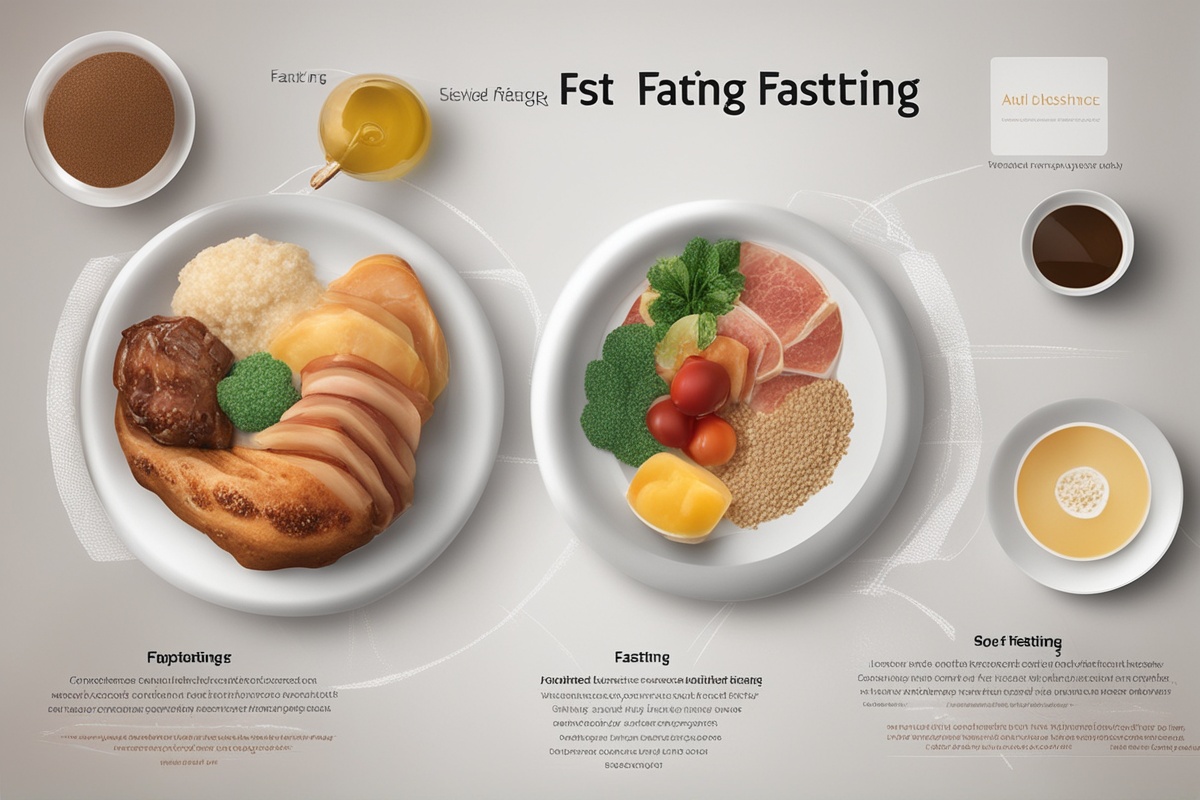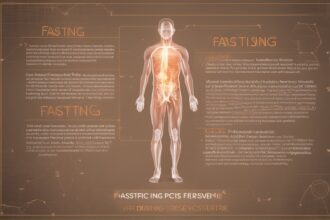Hey there, health enthusiasts! If you’ve ever wondered whether skipping a meal or two could do more than just shrink your waistline, you’re in for a treat. Today, we’re diving deep into fasting studies—the scientific research that’s uncovering how fasting impacts our bodies and minds. From weight loss to improved brain function, fasting isn’t just a trend; it’s a practice backed by growing evidence. Whether you’re a seasoned faster or just curious about intermittent fasting, this post will break down the latest findings, sprinkle in some practical tips, and help you understand why fasting might be worth a try. Let’s explore the science and see what the buzz is all about!
What Are Fasting Studies, and Why Do They Matter?
Fasting studies are scientific investigations that explore how periods of voluntary food abstinence affect human health. These studies often focus on various fasting methods, such as intermittent fasting (IF), time-restricted eating (TRE), and prolonged fasting. Researchers aim to understand how fasting influences metabolism, cellular repair, and even longevity. Why does this matter? Well, in a world where chronic diseases like diabetes and heart disease are on the rise, fasting research offers potential solutions that don’t rely on pills or invasive procedures. By examining fasting health benefits, scientists are uncovering natural ways to boost wellness—something we can all get behind!
The Science Behind Fasting: What Studies Reveal
Let’s get nerdy for a moment. Fasting triggers fascinating changes in the body, and recent fasting studies have shed light on these mechanisms. When you fast, your body shifts from using glucose (sugar from food) as its primary energy source to burning stored fat through a process called ketosis. Studies, like those published in the journal Cell Metabolism, show that this metabolic switch can reduce inflammation and improve insulin sensitivity—key factors in preventing type 2 diabetes. Additionally, fasting promotes autophagy, a cellular “clean-up” process where damaged cells are repaired or removed. Research from the National Institute on Aging suggests this could slow aging and protect against neurodegenerative diseases like Alzheimer’s. Isn’t it amazing how skipping a meal can kickstart such powerful processes?
Fasting for Weight Loss: Does the Research Back It Up?
If shedding a few pounds is your goal, you’ll be thrilled to know that intermittent fasting research consistently shows promising results. A 2020 meta-analysis in the Journal of Obesity reviewed multiple fasting studies and found that intermittent fasting led to significant weight loss in overweight individuals, often rivaling traditional calorie restriction diets. The beauty of fasting? It’s not just about eating less—it’s about eating smarter. By limiting your eating window (say, to 8 hours a day), you naturally reduce calorie intake without feeling deprived. Plus, fasting may help preserve muscle mass during weight loss, unlike crash diets. However, researchers note that results vary based on individual adherence and lifestyle factors, so it’s not a one-size-fits-all solution.
Mental Health and Cognitive Benefits: Insights from Fasting Studies
Did you know fasting might do wonders for your brain as well as your body? Emerging fasting and brain health studies are uncovering links between fasting and improved mental clarity. A study from the University of Southern California found that fasting-mimicking diets (low-calorie plans mimicking fasting effects) could enhance cognitive function and reduce markers of brain aging in mice—and early human trials are showing similar promise. Fasting may increase the production of brain-derived neurotrophic factor (BDNF), a protein that supports neuron growth and protects against stress. So, the next time you’re feeling foggy, a short fast might just clear the mental cobwebs! Of course, more human studies are needed to solidify these findings, but the early data is exciting.
Practical Tips for Starting Your Fasting Journey
Convinced by the science but not sure where to start? Don’t worry—fasting doesn’t have to be intimidating. Based on insights from fasting research studies, here are some beginner-friendly tips to ease into it:
- Start with a simple 16:8 intermittent fasting schedule—fast for 16 hours and eat during an 8-hour window. Think skipping breakfast or eating between noon and 8 PM.
- Stay hydrated! Water, black coffee, and unsweetened tea are your best friends during fasting periods to curb hunger.
- Listen to your body. If you feel dizzy or overly fatigued, break your fast with a small, nutrient-dense meal.
- Focus on whole foods during eating windows—think veggies, lean proteins, and healthy fats—to maximize fasting health benefits.
- Be patient. Studies show it can take a few weeks for your body to adapt to fasting, so don’t expect instant results.
Potential Risks and What Studies Warn About
While the benefits are compelling, fasting isn’t for everyone, and fasting studies highlight some risks to consider. Research published in the American Journal of Clinical Nutrition warns that prolonged fasting without medical supervision can lead to nutrient deficiencies, especially in vulnerable populations like pregnant women or those with eating disorders. Other studies note that fasting may cause irritability, fatigue, or overeating during non-fasting periods if not approached mindfully. Here are a few red flags to watch for:
- Extreme hunger or cravings that lead to binge eating after a fast.
- Persistent headaches or weakness, which could signal dehydration or low blood sugar.
- Disrupted sleep patterns—some studies suggest fasting too close to bedtime can mess with your rest.
- Any worsening of pre-existing medical conditions—always consult a doctor if you’re on medication or have health concerns.
The key takeaway? Fasting can be powerful, but it’s crucial to tailor it to your unique needs and heed the warnings from fasting safety research.
As we’ve seen, fasting studies are painting an inspiring picture of how this ancient practice can transform modern health. From boosting metabolism and supporting weight loss to potentially sharpening your mind, the science behind fasting is hard to ignore. But remember, it’s not a magic bullet—success lies in balance, preparation, and listening to your body. Whether you’re experimenting with a 16:8 schedule or considering a longer fast, use the insights from intermittent fasting research to guide you. Start small, stay informed, and maybe, just maybe, you’ll unlock a healthier, more vibrant version of yourself. Have you tried fasting yet? Drop your thoughts or questions below—I’d love to hear your story!






